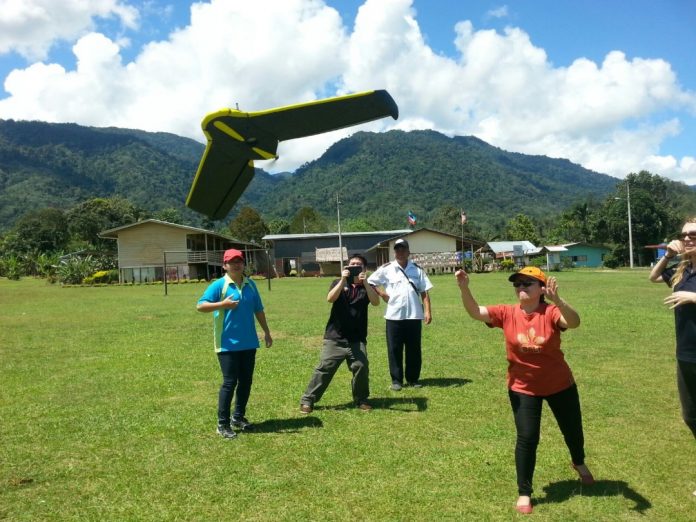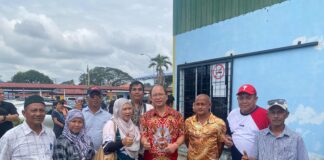KOTA KINABALU: Research led by the Universiti Malaysia Sabah (UMS) with partners in Malaysia and the United Kingdom was showcased in the Green Zone of the United Nations Climate Change Conference (COP26) in Glasgow, Scotland, recently.
The COP26 summit brings together world leaders and governments from across the globe to evaluate how to accelerate actions to address the global challenge of climate change. In addition to causing major impacts on the natural world, climate change is also one of the greatest threats to public health. Deforestation, changes in rainfall and temperature, and associated impacts on human, animal and insect populations can lead to new infectious disease outbreaks with devastating consequences.
These infectious disease impacts were highlighted at a display in the Green Zone of COP26, illustrating how deforestation can lead to the emergence of new diseases such as monkey malaria. Researchers from UMS and other partner institutes had previously showed how new tools such as drones and thermal cameras can be used to capture these effects of environmental change on disease transmission.
Researchers caught mosquitoes, mapped land cover and tracked both monkeys and people to show how deforestation and land use changes led to increased risks of monkey malaria in Sabah, Malaysia. These tools also offer new opportunities to design new surveillance and control systems to identify where outbreaks will occur.
Professor Chua Tock Hing said “this display demonstrated the cutting-edge research led by Malaysia and international partners. Climate change is a critical threat to both human and ecosystem health. New technologies such as drones and satellite data offer new opportunities to monitor these disease threats.”
Prof. Chua is the Malaysian lead of the SENSOR project, a new five-year study (2021 – 2026), which will examine how these tools can prevent new disease risks. This study, funded by the prestigious Wellcome Trust-Royal Society’s Sir Henry Dale Fellowship is a partnership among UMS, the University of Glasgow, the London School of Hygiene and Tropical Medicine and the Research Institute for Tropical Medicine.
Dr. Benny Obrain Manin of UMS said “The SENSOR project enables us to continue research to further our understanding of the impact of climate change and land use, and its connection in the transmission of infectious diseases to local communities, especially in Sabah, Malaysia.
“We are excited that this research is being shown on a global stage, drawing attention to these emerging infectious diseases and the role of climate change. With our partners in Malaysia, we are looking forward to exploring innovative new solutions to protect both human and ecosystem health” said Dr. Kimberly Fornace, from the University of Glasgow and London School of Hygiene and Tropical Medicine.
To find out more about how environmental change impacts infectious disease and how technology can help monitor these risks, see some of the content from this display at: https://arcg.is/iWLb8
About the SENSOR Project (2021 – 2026)
Landscape changes such as deforestation can increase infectious disease spread between people, wildlife and insects. Recent pandemics highlight the urgent need to improve surveillance systems to monitor risks and prevent outbreaks; however, there are substantial knowledge gaps on how disease dynamics respond to ecological changes and how to mitigate risks. The SENSOR project is a 5-year research programme among Universiti Malaysia Sabah, University of Glasgow and other partners in the UK, Malaysia and the Philippines.
Focusing on Southeast Asia, the SENSOR project will study diseases transmitted by mosquitoes to monkeys and people, including dengue, malaria, Zika and Chikungunya. This project will use combinations of field studies and mathematical modelling to understand how landscape changes disrupt social, biological and environmental systems to create new pathways for pathogen spread. This will be used to design enhanced surveillance systems using new sources of environmental data to more effectively detect and predict disease spillover and transmission.


